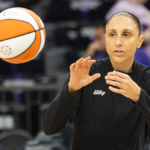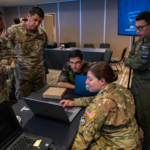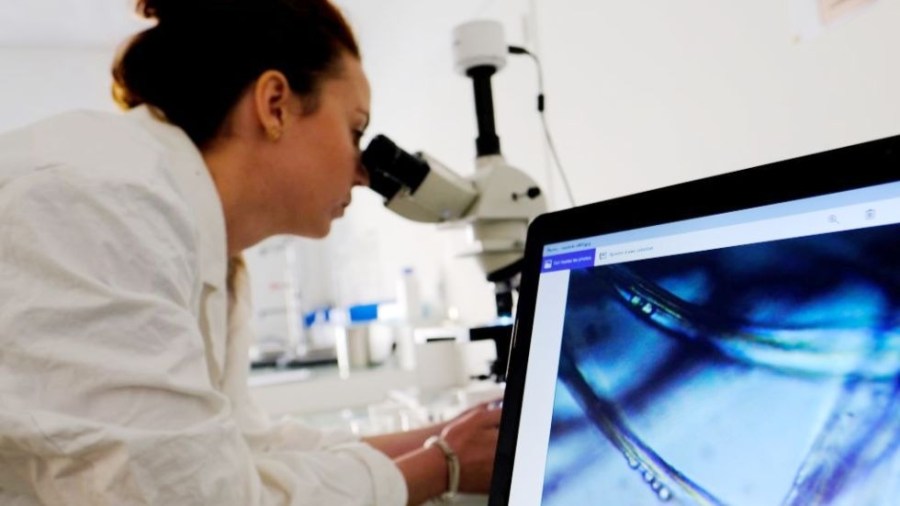Just In News | The Hill
As we lurch from one political crisis to the next — with a narrowly averted government shutdown and a resolution deadline pushed to mid-November — science research funding hangs precariously in the balance. In the meantime, we need to examine how shutdowns affect scientific progress and, by default, the health of the entire population.
Some of society’s most impactful innovations have been born out of government-backed science research, from discoveries of cancer medicines to the creation of diabetes treatments. Federal funding is truly the lifeblood of groundbreaking American science research in colleges and universities.
So, when the third shutdown in a decade almost became a reality in September and funding was left unsecured for the next fiscal year, scientists started — and continue — to worry. Without sufficient backing, the government’s largest science organizations (the National Institutes of Health and the National Science Foundation) are forced to stop reviewing grants to fund research projects. When these organizations have to halt the process, the institutions built around their funding balk.
Last year, the National Institutes of Health invested $33.3 billion in extramural funding, which went to scientists working in colleges and universities. The National Science Foundation is responsible for funding up to 25 percent of the nation’s basic science projects. Thus, the shockwave of a shutdown works its way from the halls of Congress to the halls of campuses.
Confronted with financial insecurity, science faculty at academic institutions get nervous. When they lose the opportunity to seek grants, they cannot pay for their science (which is rarely cheap). Without science, they cannot publish. Many professors rely on federal funding to purchase and maintain lab equipment, preserve samples, and pay their lab members.
Most of those lab members are graduate students like me. Often overlooked, approximately 3 million Americans and international students work as graduate students in the trenches of academia. In response to the 2019 shutdown over funding President Trump’s border wall, former National Science Foundation Deputy Director Joel Widder recognized, “The threat of a shutdown makes people not take decisions. … Graduate students’ stipends, traineeships … have been put on hiatus.”
That’s not just true of National Science Foundation scientists but also of researchers at colleges and universities. Furthermore, delays in public funding can kill projects that graduate students have invested years of work into perfecting.
Several projects and opportunities for graduate students are time-sensitive. Many natural phenomena occur on their own schedules and not for the sake of Beltway political theatre. When federal agencies are reduced to skeleton crews, they often can’t afford to keep running important databases that might be the source of a graduate student’s data.
This previously occurred with the National Institute of Standards and Technology’s National Vulnerability Database during the 2019 shutdown. This database is a powerful resource for those studying weaknesses in information technology and cybersecurity. Our nation has a continued interest in staying ahead of these vulnerabilities, and depriving researchers of access to the database can have consequences. Although not directly attributed to the shutdown, the following year saw the greatest number of securities vulnerabilities ever disclosed.
Delays to graduate research caused by a shutdown are not accounted for in graduate studies programs. On the contrary, colleges and universities make clear (in employment contracts with graduate students) that funding for graduate work and education may be cut due to adverse financial conditions. Nevertheless, graduate students are consistently expected to make progress toward their degrees.
While a failure to continue a project because of a shutdown might not singlehandedly end a graduate career, considerable opportunity costs have already been paid and new challenges always arise with finding alternative projects.
Graduate students and faculty should meet this uncertainty with action, not despair. They should keep advocating for our nation to remain at the forefront of scientific advancement. Otherwise, critical scientific progress may be lost, future advancements may be thwarted, and public health crises are likely to ensue.
Javier Mesa is a Ph.D. candidate at the University of Florida, studying the neurobiology of substance use disorders. He is also an attorney and is passionate about policy, criminal justice reform, and neurolaw.
White House, Opinion Read More
Author Profile
Latest entries
 ScienceOctober 23, 2024How guilt and shame control environmental decisions
ScienceOctober 23, 2024How guilt and shame control environmental decisions HeadlinesOctober 23, 2024WNBA champion Diana Taurasi continues to mull possible return next season: 'I think about it every day'
HeadlinesOctober 23, 2024WNBA champion Diana Taurasi continues to mull possible return next season: 'I think about it every day' ScienceOctober 22, 2024Space Force refining commercial backup plan for military satellites
ScienceOctober 22, 2024Space Force refining commercial backup plan for military satellites LifestyleOctober 22, 2024Rivian’s Halloween Update Includes Knight Rider And Back To The Future Costumes
LifestyleOctober 22, 2024Rivian’s Halloween Update Includes Knight Rider And Back To The Future Costumes

